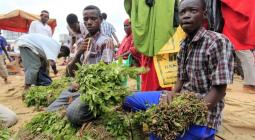We practised for a pandemic, but didn’t brace.

Unheeded lessons from simulations of health and other disasters could still assist recovery.
Planners have known that something like COVID-19 would come, even if they could never be sure when or from where. It is hard for politicians to garner the social licence to prepare for catastrophes that people see as unlikely and far from their daily lives.
From 2012 to 2019, I was a chief scientific adviser — a technocratic expert — in the UK government. When an emergency did happen, such as the release of a nerve agent in the city of Salisbury in 2018, I knew that real people might die if I made mistakes.
I took part in simulated exercises to prepare my country for the practical, economic and social shock waves from rare but devastating events — volcanic eruptions that affect whole hemispheres, meteor strikes, zoonotic epidemics and other calamities. I recall a practice run for an influenza pandemic in which about 200,000 people died. It left me shattered.
We learnt what would help, but did not necessarily implement those lessons. The assessment, in many sectors of government, was that the resulting medicine was so strong that it would be spat out. Nobody likes living under a fortress mentality.
Two messages were clear. First, that we were poorly prepared. Second, that governments would quickly be called on to cover the damage. They are the insurers of last resort, even if they rarely quantify and plan for those risks. Our experience of COVID‑19 is showing just how true this is, and suggests what we should do once recovery begins.
My experiences also highlighted two priorities. One is that the teams fighting COVID‑19 need resilience. Health-care specialists are the most vulnerable, but people throughout government are under strain. Politicians, specialists and others must cope with mental exhaustion, something most people never experience or witness. They are just flesh and blood, with family to worry about, and they get sick. Indeed, we have already seen politicians and government experts across the world fall ill. We need contingency plans to keep government functional at all levels.
The other priority is getting people to respond well to interventions, especially changes to routine. This is one of the biggest unknowns in these scenarios, and yet compliance can be the most crucial factor in determining whether an intervention works. Balancing lockdown against the social licence to act as one sees fit is essential. Ideally, policy implementers would land the perfect response at the first try, but this almost never happens. It’s messy and full of uncertainty. This can make the government seem indecisive, as we’ve seen as some governments shift their position on the role of herd immunity or whether alcohol outlets counted as ‘essential services’ that can remain open when other shops closed. But being flexible is actually a strategic imperative.
After the first few days (if that) of emergencies such as COVID‑19, there is no manual to follow. It is important to learn from previous epidemics, as well as to respond to the evidence emerging in real time. But every country will require its own approach, even if the same epidemiological principles for reducing transmission apply everywhere. Plans provide only a template — command and control, reserve personnel and resources, computer models and communications tools and so on. How these are deployed and coordinated needs to be highly fluid.
The priority in all instances is to get ahead of this fast-moving disease. This means looking beyond purely technical measures such as tests, therapies and vaccines. A successful response uses social forces such as peer pressure and altruism to help people adapt to changing circumstances. It delivers messages and support that promote self-reliance rather than encourage people to fall back on stressed state support. Cultures and communities used to providing some of their own services (for example, neighbourhood-watch programmes) often fare better than those accustomed to relying on state support.
Recovery, when it eventually happens, is going to bring fresh challenges. In New Orleans, Louisiana, flooding led to long-term mental-health problems; in Salisbury, it took more than a year of diligent cleaning to return parts of the city to public use.
While I was chief scientific adviser at the UK Department for Environment, Food and Rural Affairs, much of the talk while planning for Brexit was about keeping food, drugs, fuel and so on available. It showed how little we knew about those vulnerabilities. If they fail, many of our life-support systems, such as the water supply, fail, too. Ironically, Brexit planning might help the United Kingdom to tackle the greater challenge of COVID‑19. We need to start planning now for how we will rebuild.
Despite financial safety nets spread out by some governments, we should not expect our systems of resources and service provision to bounce back to the way they were. COVID-19 is bringing systemic change on a global scale.
Having been faced with our weaknesses, I hope we see a shift in values so that we are less likely to continue with our unsustainable rates of resource consumption, assumptions that there will always be a benevolent government to fall back on and disregard for vulnerabilities attributable to climate change.
COVID-19 might be just a wake-up call: let’s use it to rebuild our systems into something more resilient.
Nature 580, 9 (2020)
doi: 10.1038/d41586-020-00919-3
30 March 2020
nature




